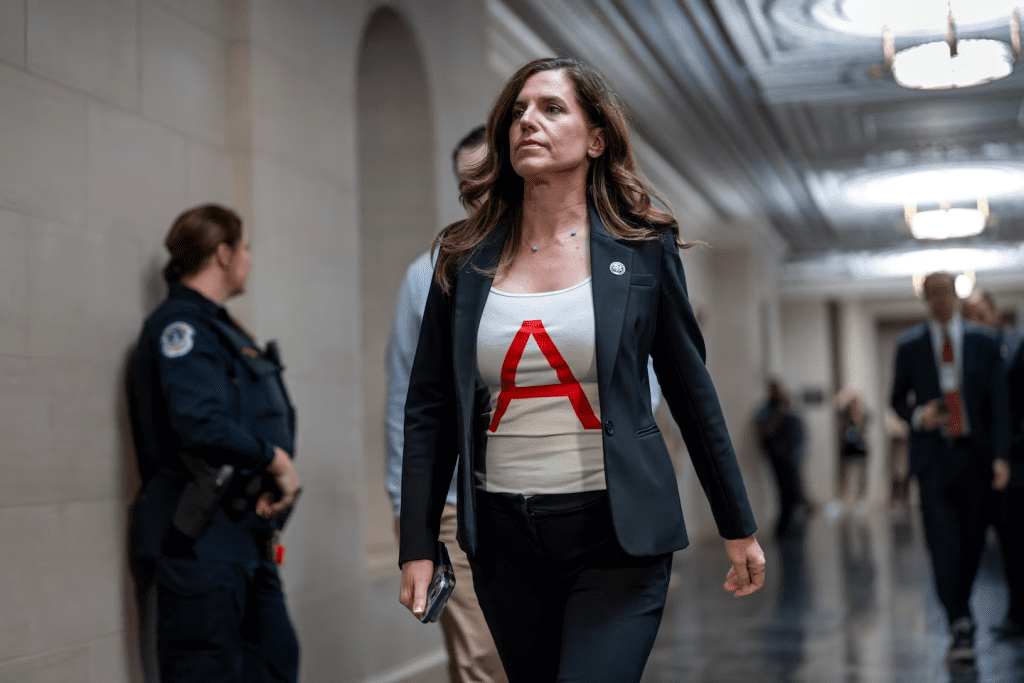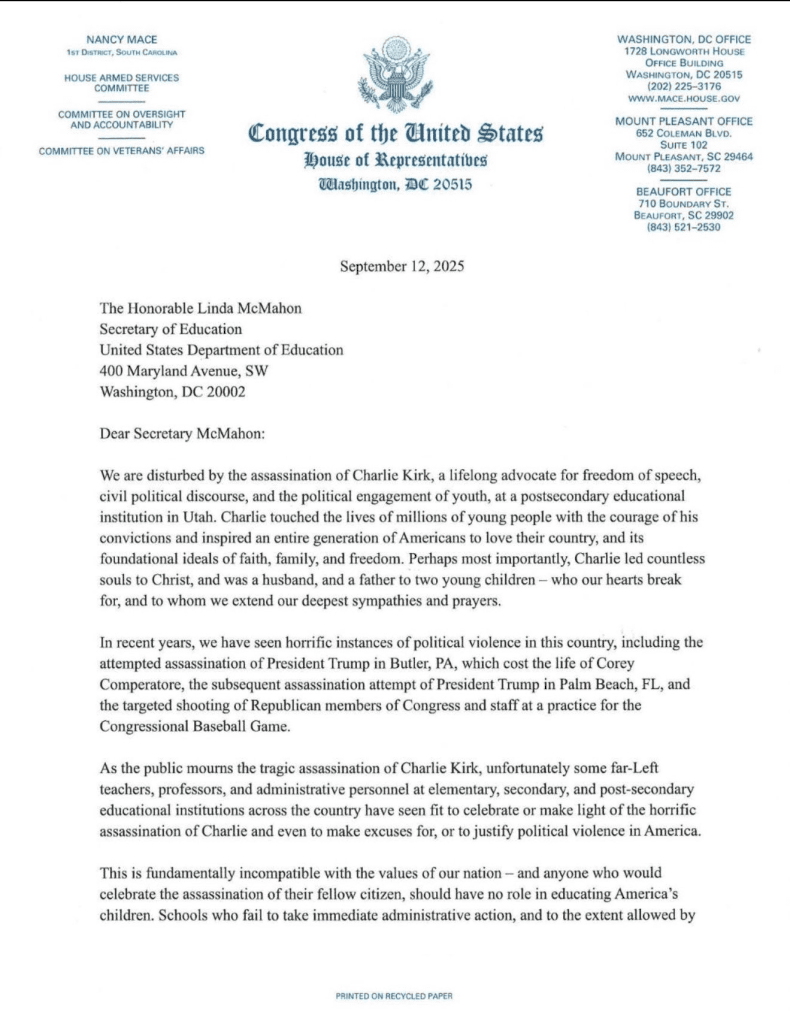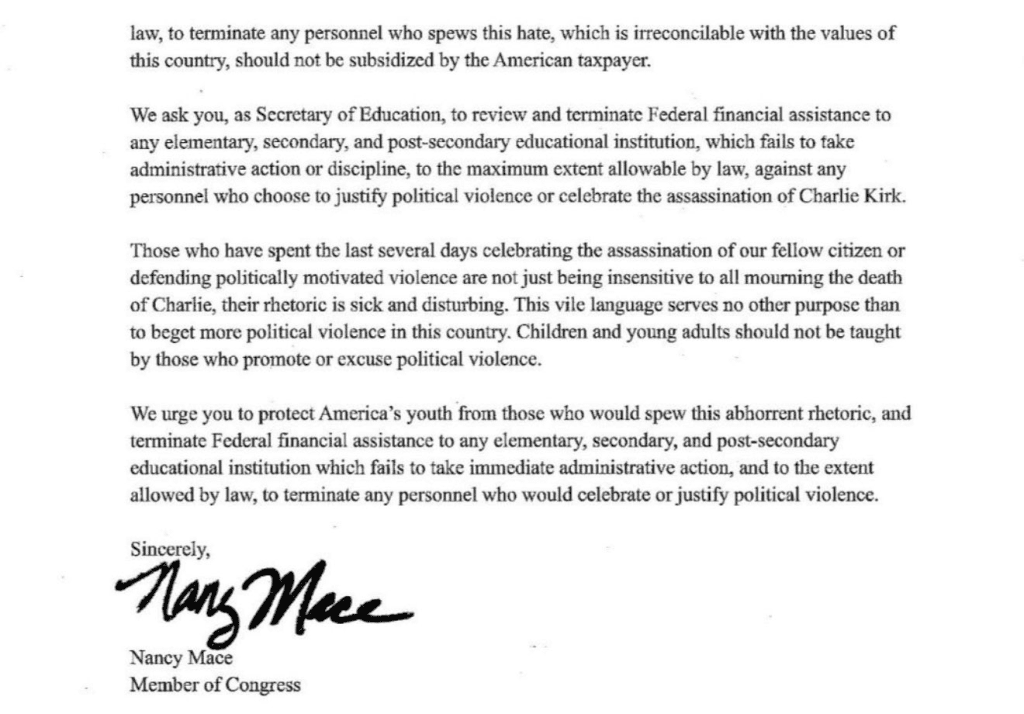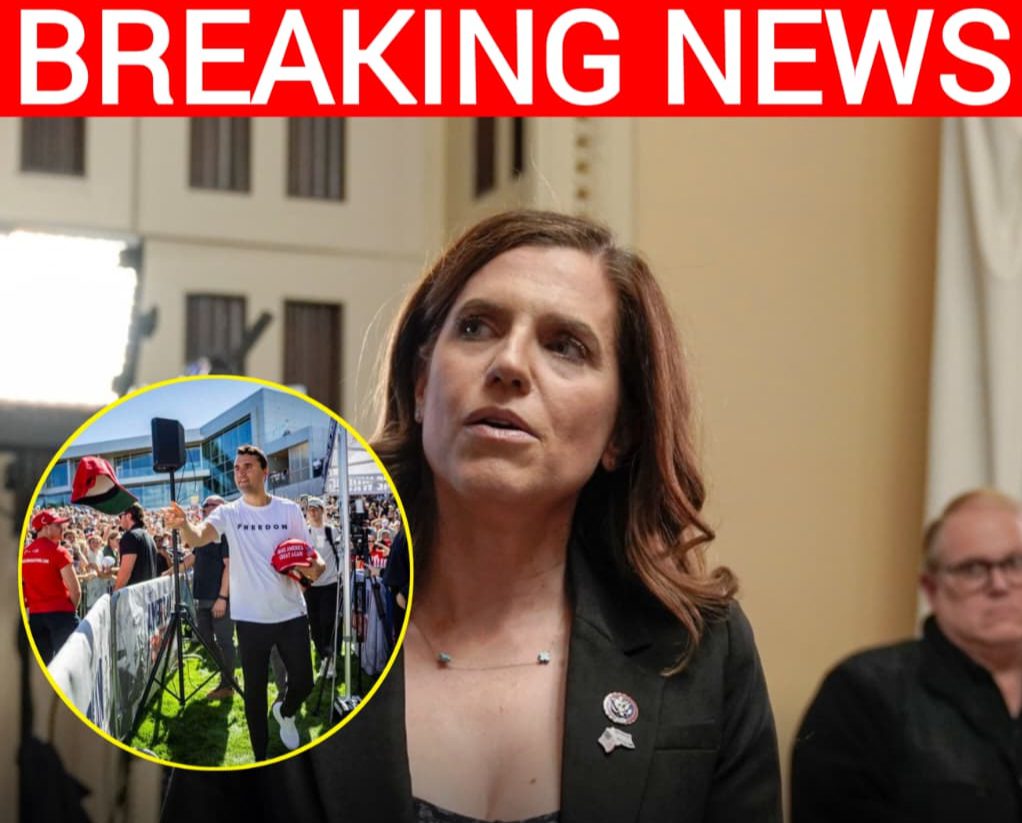Rep. Nancy Mace Demands Schools Lose Federal Funding if They Don’t Hold Staff Accountable for Celebrating Charlie Kirk’s Killing
The fallout from the assassination of Charlie Kirk continues to ripple far beyond the crime itself, touching schools, politics, and the broader culture. The latest shock came with Representative Nancy Mace stepping forward to formally request that the Department of Education cut off federal funding for schools and districts that refuse to hold teachers and staff accountable if they are found celebrating Kirk’s death. Her demand has already set off a storm of debate, not just in Washington but across communities wondering how far accountability should go when educators step into political controversies in such an explosive way.

For Mace, the issue is simple. Schools and districts receive billions in taxpayer dollars each year, and with that money comes responsibility. In her view, any institution that allows teachers or staff to openly celebrate the murder of a public figure—especially one as well known as Charlie Kirk—has crossed a line that cannot be ignored. “Not one penny should go to them,” she made clear in her announcement, drawing a sharp boundary between free speech protections and what she considers an unacceptable endorsement of violence. Her stance is not just about education policy, but about setting a moral tone for the nation’s schools, where children are supposed to be protected from hate, fear, and the glorification of tragedy.

The request strikes at the heart of a larger debate America is having in the wake of Kirk’s killing. The role of teachers has always carried weight beyond the classroom, but in an era where political polarization runs deep, their words and actions—even on social media—are watched closely. Stories have already surfaced of educators making crude jokes or celebratory remarks online after the assassination, sparking outrage among parents and lawmakers. For families sending their children into classrooms each day, the idea that those responsible for guiding young minds might be applauding violence is nothing short of terrifying. Mace’s demand puts that fear front and center, insisting that silence or inaction by schools is not an option.

What makes her request even more charged is that it directly involves federal funding. For many schools, especially underfunded districts, the loss of federal dollars would be catastrophic. It would not just punish the administrators who failed to act, but potentially impact students who have nothing to do with the controversy. Critics of Mace’s move have already pointed out that punishing an entire district for the missteps of a few could create more harm than good. But her supporters argue that without the threat of real consequences, schools will never take accountability seriously. It is a tug-of-war between protecting institutions and demanding responsibility, and it is a fight that is unlikely to end quietly.

In moments like this, it becomes clear that the aftermath of Kirk’s assassination is shaping into something larger than a single criminal case. It has become a cultural reckoning over free speech, accountability, and the boundaries of acceptable behavior in public service. Teachers, often seen as role models, are being forced to reckon with their words in ways they may not have imagined. Lawmakers like Nancy Mace see this as a turning point, a chance to send a message that celebrating violence—no matter who the target may be—is incompatible with the values of a nation that claims to stand for justice and civility.
As the Department of Education reviews Mace’s request, families and communities across the country are watching closely. The decision could set a precedent that stretches well beyond this single tragedy, determining how schools balance freedom of expression with their duty to protect students and maintain trust. For now, what remains clear is that the murder of Charlie Kirk has ignited a debate that touches nearly every corner of American life—from classrooms to Congress. And if Mace has her way, schools that fail to act decisively in the face of this controversy may soon find themselves paying the price in the harshest way possible.


